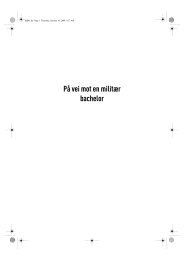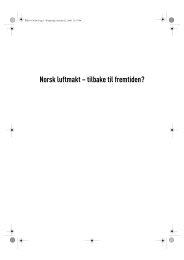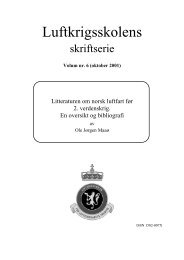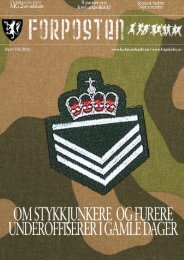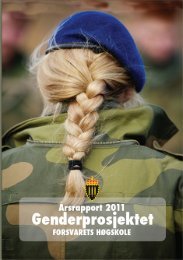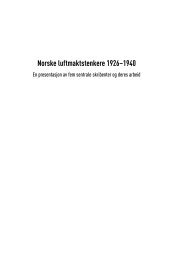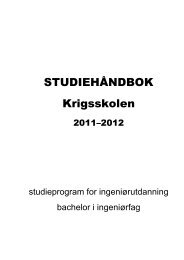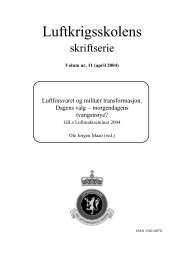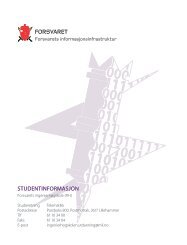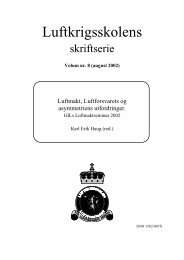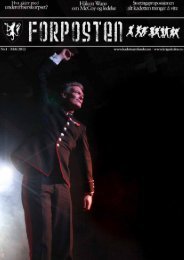Wilhelm Mohr
Wilhelm Mohr
Wilhelm Mohr
Create successful ePaper yourself
Turn your PDF publications into a flip-book with our unique Google optimized e-Paper software.
<strong>Wilhelm</strong> <strong>Mohr</strong>. On World War II<br />
deployed respectively to Royal Navy and Royal Air Force operational<br />
control. In addition, elements of the Army were gathered in Scotland,<br />
to support the growing resistance movement within occupied Norway.<br />
Norway truly became an ally to Britain.<br />
We can claim, with some pride, that the income from our merchant<br />
fleet funded our share of the War effort. However, at the same time we<br />
must recognise our good fortune that, during the period when Britain<br />
stood alone, the battle of Britain had been won with no invasion taking<br />
place.<br />
My own luck was to be part of ’the Norses’ within Fighter Command.<br />
This comprised of two squadrons, 331 and 332, totalling about<br />
300 pilots and ground crew. Besides our training camp ’Little Norway’<br />
in Canada, we also had two squadrons in Costal Command and<br />
numerous crews in Bomber Command and ferry Command, as well as<br />
crews on the ferry link to Sweden under the auspices of the civil airline<br />
BAOC.<br />
I was in my early twenties at the time, but vividly recall when, in May<br />
1942, the two fighter squadrons were moved from Scotland and the<br />
north of England to RAF Station North Weald near Epping. There we<br />
were to meet our Wing Leader-to-be, David Scott-Malden, a classics<br />
scholar from Winchester and King’s College and now proven in combat<br />
from the Battle of Britain. He had been in part responsible for getting<br />
us south and knew what was in store for us. It was he who really coached<br />
us in the ways of the RAF and introduced us to the realms of aerial<br />
combat that were to follow.<br />
The Station Commander at one time, Douglas A. G. Morris (or<br />
’Zulu’ as we called him) later gave an account of our association:<br />
The Norses were possibly the easiest of all Allies to handle. Their sense of humour<br />
– or sense of the ridiculous – and their reaction to any form of pomposity was easily<br />
understood and accepted. They all spoke more or less fluent English, and when<br />
British and Norwegians were together it was only by the different insignias on our<br />
uniform that strangers could tell us apart (from Laddie Lucas’s Wings of War,<br />
1985).<br />
98



